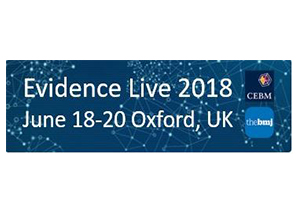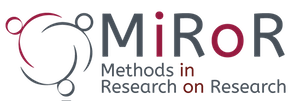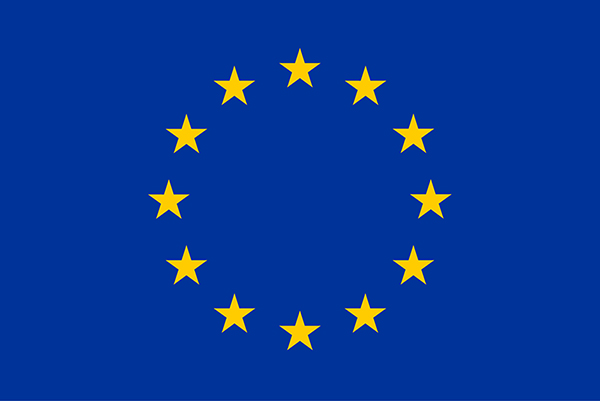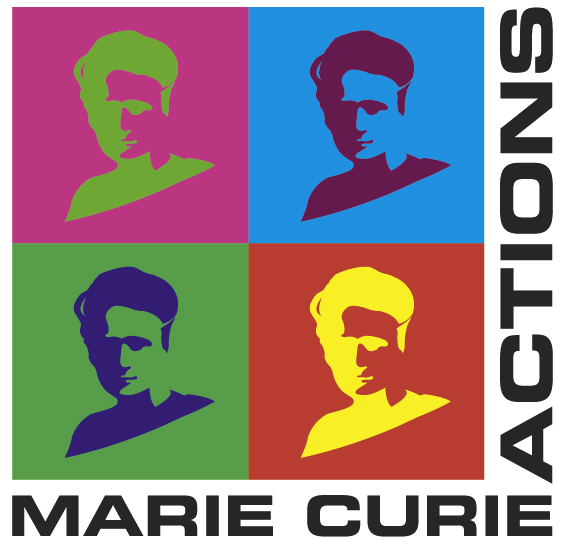My experience at Evidence Live 2018
My experience at Evidence Live 2018
9 July 2018 Comments Off on My experience at Evidence Live 2018This year’s Evidence Live conference was on June 18–20, 2018 at the University of Oxford. The conference’s programme contained an interesting and important line-up of speakers, sessions, workshops and seminars on informing, developing and implementing evidence for real change.
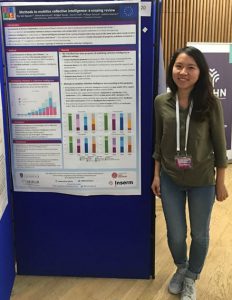 Three of the MiRoR research fellows attended this conference: I presented my work on methods for identifying and displaying research gaps and fielded questions about public participation on the methods I shared. Mona Ghannad presented her work on “Misrepresentation and over interpretation in evaluations of biomarkers in ovarian cancer: a systematic review”, in which she highlighted her key findings on spin. She had a very engaged audience who proposed conducting similar work, not only in ovarian cancer biomarkers, but also on other topic areas. Van Nguyen Thu (pictured left) had a poster presentation entitled “Methods to mobilize collective intelligence: A Scoping Review”. She received good feedback on the applicability of collective intelligence in clinical research planning. Her work provided her with the opportunity to get in touch with Anna Noel-Storr, the leader of the successful Cochrane crowd initiative, which allows tens of thousands of volunteers globally to contribute to evidence synthesis.
Three of the MiRoR research fellows attended this conference: I presented my work on methods for identifying and displaying research gaps and fielded questions about public participation on the methods I shared. Mona Ghannad presented her work on “Misrepresentation and over interpretation in evaluations of biomarkers in ovarian cancer: a systematic review”, in which she highlighted her key findings on spin. She had a very engaged audience who proposed conducting similar work, not only in ovarian cancer biomarkers, but also on other topic areas. Van Nguyen Thu (pictured left) had a poster presentation entitled “Methods to mobilize collective intelligence: A Scoping Review”. She received good feedback on the applicability of collective intelligence in clinical research planning. Her work provided her with the opportunity to get in touch with Anna Noel-Storr, the leader of the successful Cochrane crowd initiative, which allows tens of thousands of volunteers globally to contribute to evidence synthesis.
This conference presented a great platform to listen, learn and share more about how to improve research and covered many different currently ongoing initiatives: below I share with you some of the highlights of the conference as well as the most relevant sessions to the MiRoR consortium and fellows:
- Opening session
- The conference started off with Carl Heneghan, director of the Centre for Evidence–Based Medicine at the University of Oxford. He paid tribute to the late Doug Altman and remembered his legacy on improving medical research and his unwavering contribution to previous Evidence Live conferences.
- Collaboration, research registration, research integrity and research on research
- Helen MacDonald from the British Medical Journal (BMJ), strongly advised researchers and the greater evidence ecosystem to campaign to partner better with patients.
- Dr Vasee Moorthy with the World Health Organization (WHO) in Geneva described the efforts the WHO has taken to ensure clinical trial registration. He highlighted the implementation of the International Clinical Trials Registry Platform (ICTRP) in 2007, which includes a search portalproviding a single point of access to studies registered in various international registries. Despite this effort he shared that more needs to be done by nation states to make sure that policies be in place and be enforced—not only regarding clinical trial registration but also regarding the full disclosure of study results.
- Dr Emily Sena, Editor-in-Chief of BMJ Open Science presented on the importance of registration and reporting of animal research, she noted that improper or inadequate reporting of study results or plans can have negative effects on conducting trials on humans. This perspective shows that, no matter the field, research needs to be done and reported the right way, abiding by initiatives such as EQUATOR and The Reward Alliance.
- Trish Groves advocated for more research on research being done, similar to our MiRoR programme. She believes this is an important area that needs greater attention and more research across different disciplines and around the world.
- Producing data-driven tools:
- Ben Goldacre and the Evidence-Based Medicine DataLab, at the University of Oxford, presented their work on making science and healthcare data more impactful in the real world, such as the FDAAA trials tracker, which aims to show which clinical trials are reporting their results; open prescribing, aimed at supporting safe, more efficient prescribing; and COMPare Trials, looking at how clinical trials are conducted and reported, to ensure health care providers and patients have the most complete and accurate view of the evidence impacting their health.
- Critical thinking for the younger generation and key concepts for teaching critical thinking and critical appraisal:
- Andy Oxman presented his work on teaching children to assess the trustworthiness of claims and make informed choices, sharing experiences from Uganda, Kenya and Norway. His work with Informed health choices focuses on making children more aware of evidence-based decision making and developing critical appraisal skills.
- Similarly, a workshop session led by Oxman and Iain Chalmers discussed “Key concepts for informed health choices: a framework for helping people learn how to assess treatment claims and make informed choices”. These sessions emphasized the importance of engaging the public and empowering them to make better evidence-based decisions about their care.
- Finding the truth through medical journalism:
- The importance of informed patients and evidence-based care was driven home by a testimony from Kath Sansom from the Sling the mesh blog entitled “How I stumbled into the biggest women’s health scandal of our generation”. Sansom’s personal experience and perspective brought to life the true impact that flawed and misleading research can have on our day-to-day lives. She strongly advocated the importance of researchers’ collaborating with journalists to help provide the public with the right information to make informed decisions, thereby using evidence for real change. This partnership between scientists and journalists can help eliminate myths and provide the right information to make the right decisions and choices.
Given the quantity and quality of interesting topics discussed, I found this conference very useful for my PhD project and I look forward to next year’s conference and future collaborations.
by Linda Nyanchoka, MiRoR Research Fellow
